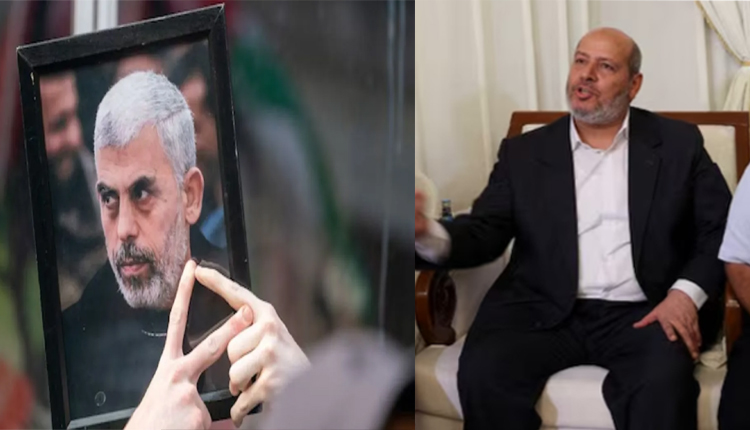Gaza City: Following the assassination of Hamas chief Yahya Sinwar by Israeli forces on Thursday, 17 October, the militant group has appointed Khalil Al-Hayya as its new leader. This leadership change comes at a critical juncture as Hamas continues to navigate the complexities of the ongoing conflict with Israel.
Yahya Sinwar, a prominent figure within Hamas, was killed during an Israeli airstrike, marking a significant loss for the organisation. In the aftermath, Hamas swiftly moved to consolidate its leadership by selecting Khalil Al-Hayya as Sinwar’s successor. Al-Hayya, who currently resides in Qatar, was chosen over other potential candidates, including Khaled Meshaal, reflecting the group’s strategic direction and internal dynamics.
Khalil Al-Hayya is a seasoned leader within Hamas, known for his diplomatic acumen and strong ties with Iran. In April of this year, amid stalled ceasefire negotiations, Al-Hayya expressed a willingness to agree to a long-term ceasefire with Israel, contingent upon the establishment of an independent Palestinian state. He proposed that Hamas would disarm and transition into a purely political entity under such circumstances, signalling a potential shift towards moderation within the organisation.
According to reports from Reuters, both Ismail Haniyeh and the late Sinwar had placed their trust in Al-Hayya to lead negotiation efforts with Israel. His leadership is seen as pivotal in navigating the delicate balance between militant resistance and political engagement.
In a statement confirming Sinwar’s death, Khalil Al-Hayya declared, “With the loss of our esteemed leader Yahya Sinwar, we are now stronger and more united in our cause.” Al-Hayya emphasized that Hamas remains resolute in its objectives, stating that the release of Israeli hostages taken during the attacks on 7 October would not be entertained until Israeli aggression ceases and withdrawal from the besieged Palestinian enclaves occurs.
Al-Hayya further asserted, “The assault on Gaza will not end, and the return of prisoners will only happen after the cessation of the assault and the withdrawal of Israeli forces. Death will be a curse upon the aggressors.”
The appointment of Khalil Al-Hayya comes at a time of heightened tensions and ongoing military engagements between Hamas and Israel. Al-Hayya’s leadership is expected to influence the strategic direction of Hamas, potentially impacting future ceasefire negotiations and the broader geopolitical landscape in the region.
The international community is closely monitoring Hamas’s leadership transition, with implications for peace efforts and regional stability. Al-Hayya’s previous statements indicating a willingness to engage in ceasefire talks may open avenues for renewed diplomatic initiatives, although skepticism remains regarding Hamas’s commitment to long-term peace.
As Khalil Al-Hayya takes the helm of Hamas, the organisation faces the dual challenge of maintaining its militant stance while potentially exploring avenues for political dialogue. The coming weeks will be critical in determining whether Al-Hayya can steer Hamas towards a more strategic and possibly conciliatory path, amidst the enduring conflict with Israel and the broader quest for Palestinian statehood.



Comments are closed.